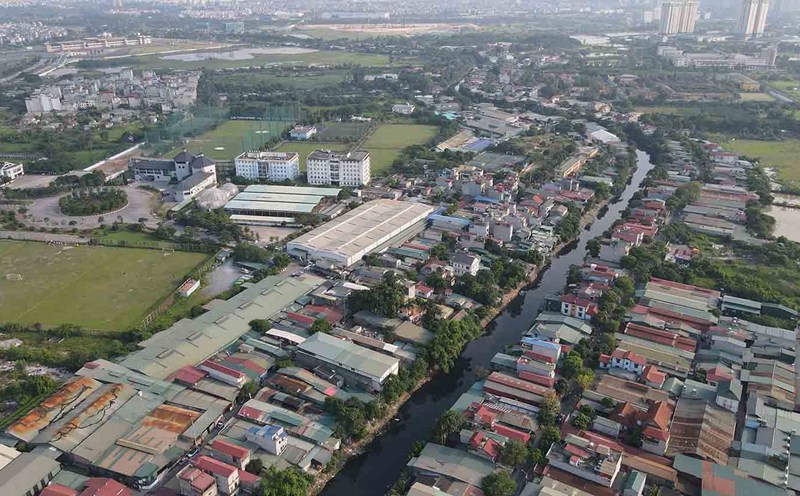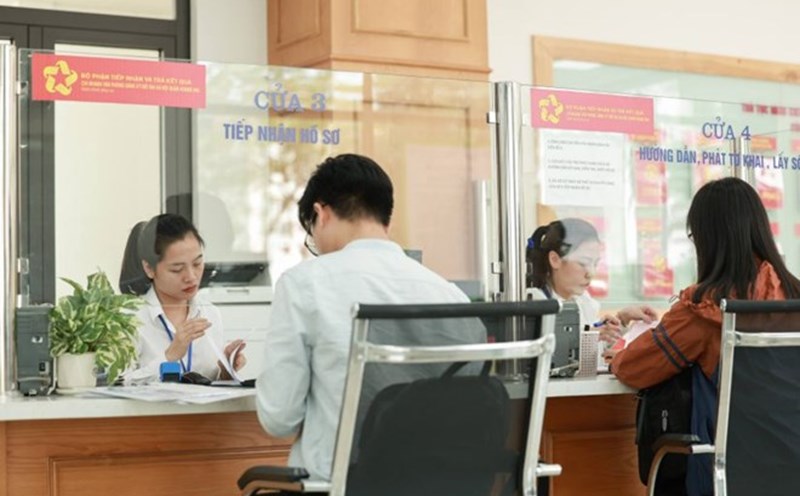On September 10, at the Government Headquarters, Deputy Prime Minister Tran Hong Ha chaired a meeting to listen to a report on receiving opinions from Government members on the draft Law amending and supplementing a number of articles of the 2024 Land Law.
At the meeting, Prof. Hoang Van Cuong (National Assembly Delegate of Hanoi City Youth Union), proposed to narrow the scope of land recovery by the State, only applicable to public purposes, national defense and security.
For commercial and service projects, he said that businesses and people should negotiate on their own, only in special cases when the majority of households (75 80%) have agreed to the compulsory recovery.
Concluding the meeting, the Deputy Prime Minister agreed with the proposal of the Ministry of Agriculture and Environment to not establish a commune-level land use plan, while a commune-level land use plan needs to be closely linked to urban and rural planning, ensuring spatial efficiency.
Regarding the regulation on supplementing cases where the State reclaims land for socio-economic development for national and public interests, the Deputy Prime Minister stated: National defense, security projects, free trade zones, international financial centers under the authority of the Prime Minister and the State will be reclaimed, especially social infrastructure projects such as social housing, education, healthcare, etc. need to have specific regulations.
In addition, the Ministry of Agriculture and Environment needs to study regulations assigning the Prime Minister to approve land recovery decisions in special cases.
Assessing that there are currently no clear criteria for auction and bidding cases, the Deputy Prime Minister said that auctions are applied to public land with cleared land, detailed planning, and infrastructure.
As for bidding suitable for areas without synchronous infrastructure, requiring large investments for development, "if the law cannot specify in detail, the Government can be assigned to guide".
Land use rights auctions need to be linked to detailed planning, not just stopping at zoning planning, to ensure transparency and feasibility.
Regarding land price determination, the Deputy Prime Minister agreed with the view that it is necessary to maintain a land price list every 5 years, with an adjustment coefficient according to market fluctuations.
This coefficient must have a clear method of determination, a specific legal basis and a volatility threshold to adjust. In the long term, it is necessary to move towards a unified land price based on land data, but in the immediate future, we still have to apply the price list and coefficient.
The Deputy Prime Minister also noted that the regulation of new land groups needs to be selective, avoiding overlapping listings.
For BT (Construction - Transfer) projects, the Deputy Prime Minister requested the Ministry of Agriculture and Environment to coordinate with the Ministry of Construction to review and design regulations to ensure consistency on the time of land valuation when allocating land and signing contracts.
Finally, regarding additional fees due to late payment of land use fees, the Deputy Prime Minister emphasized the need to have regulations for force majeure cases such as natural disasters, epidemics, etc., or due to the State's adjustment of planning, causing land users to delay payment of land use fees, not allowing unreasonable fees to be collected from businesses and people.
At the same time, there should be a fair policy for households and individuals who use land stably and legally but are slow to complete procedures for granting Land Use Rights Certificates.











